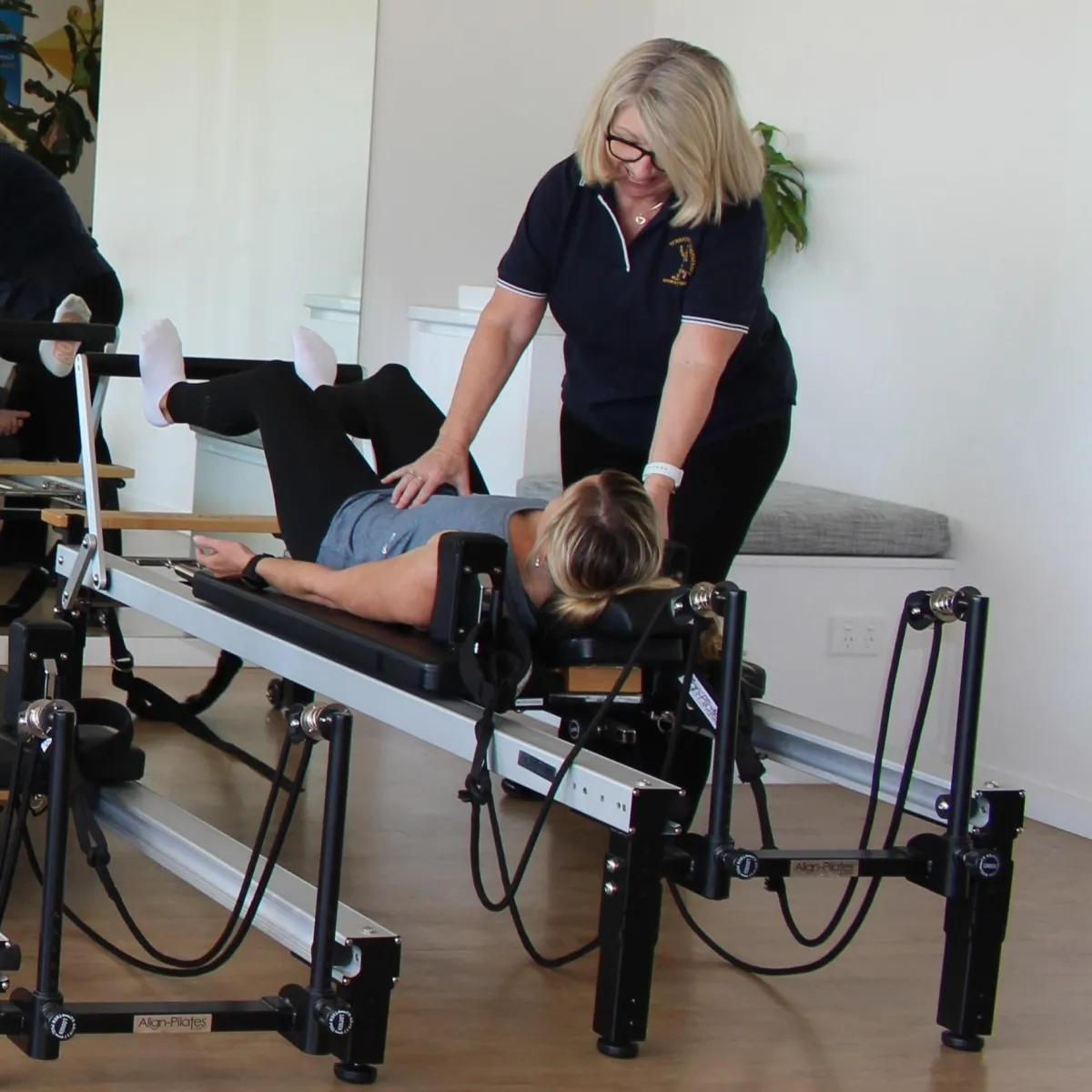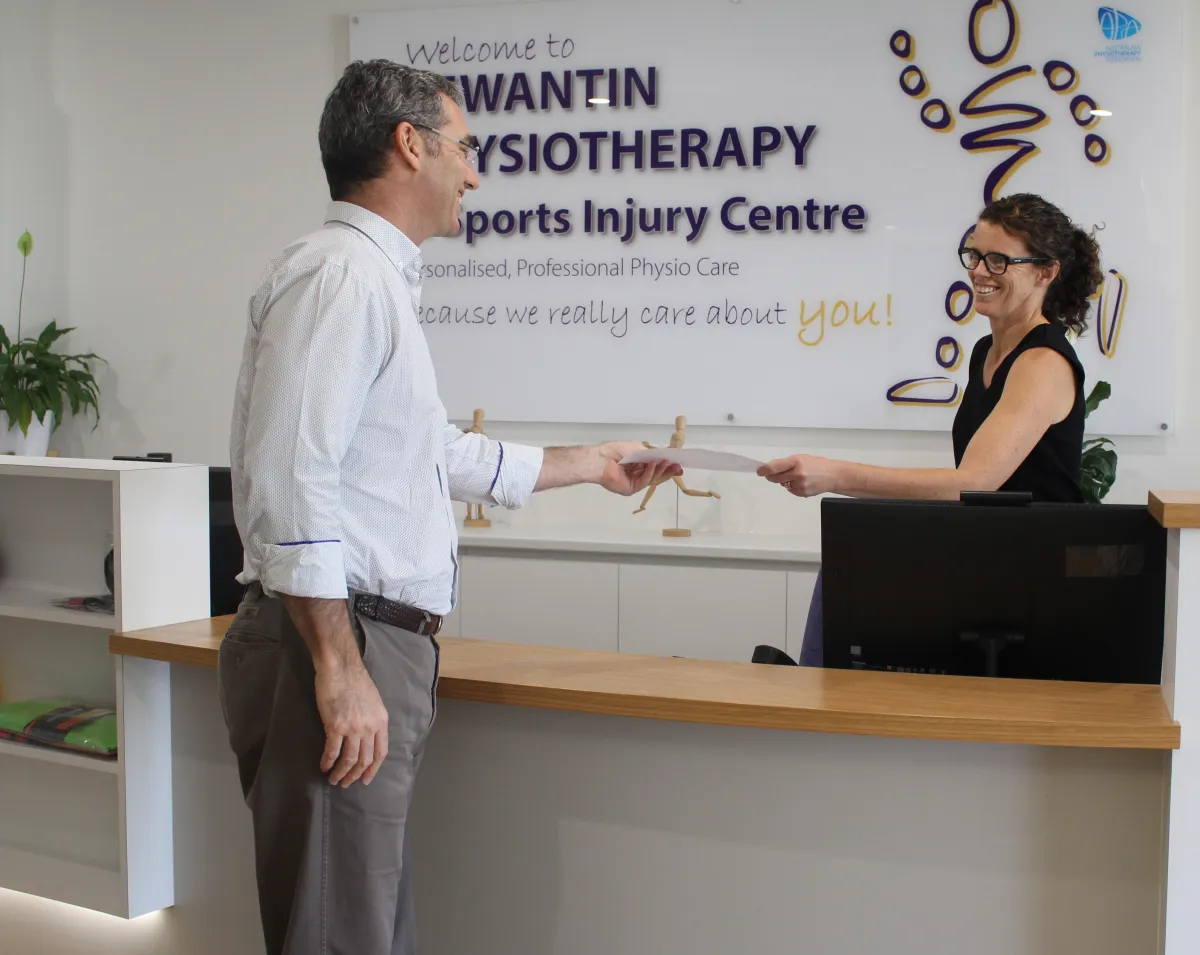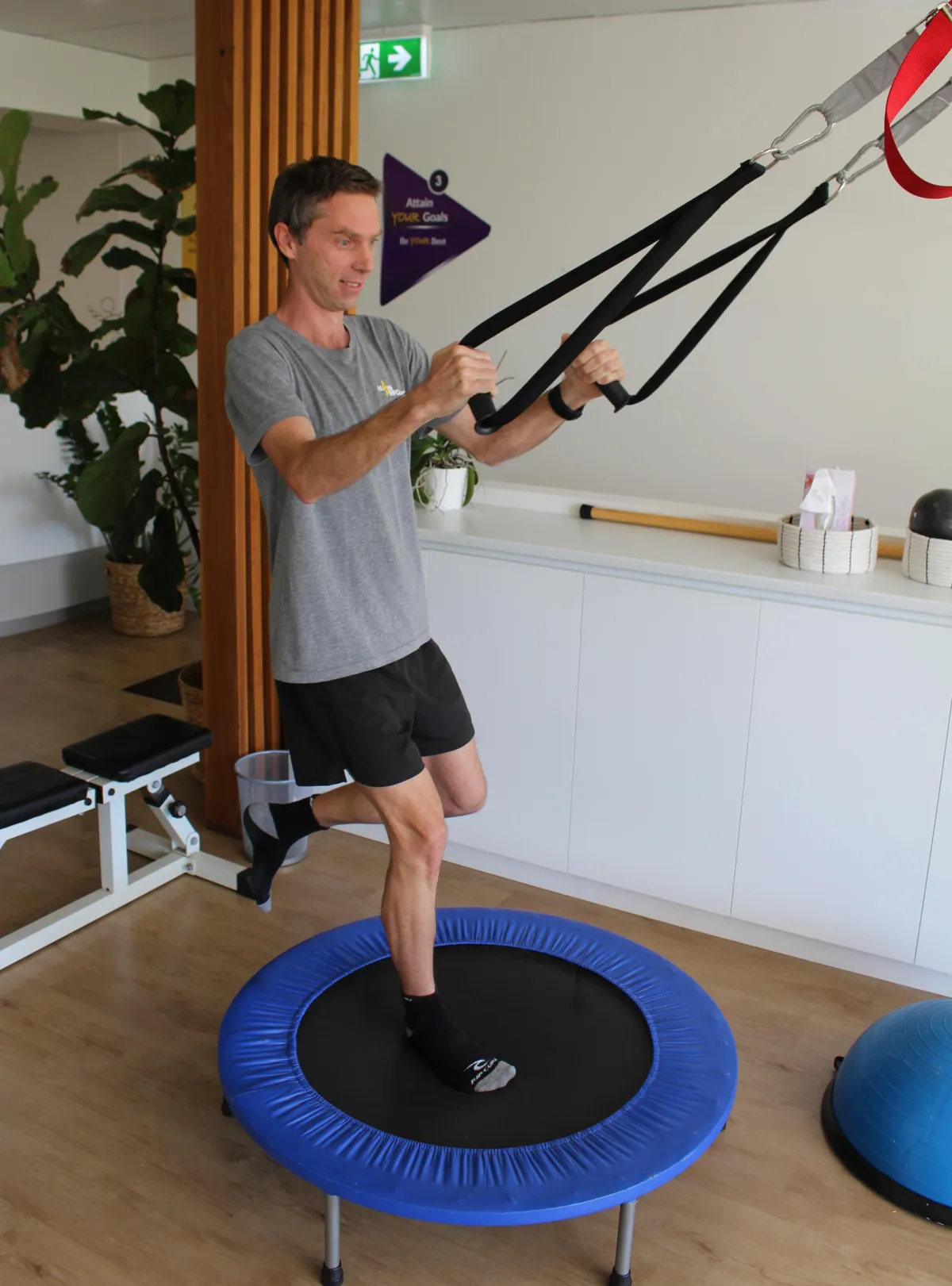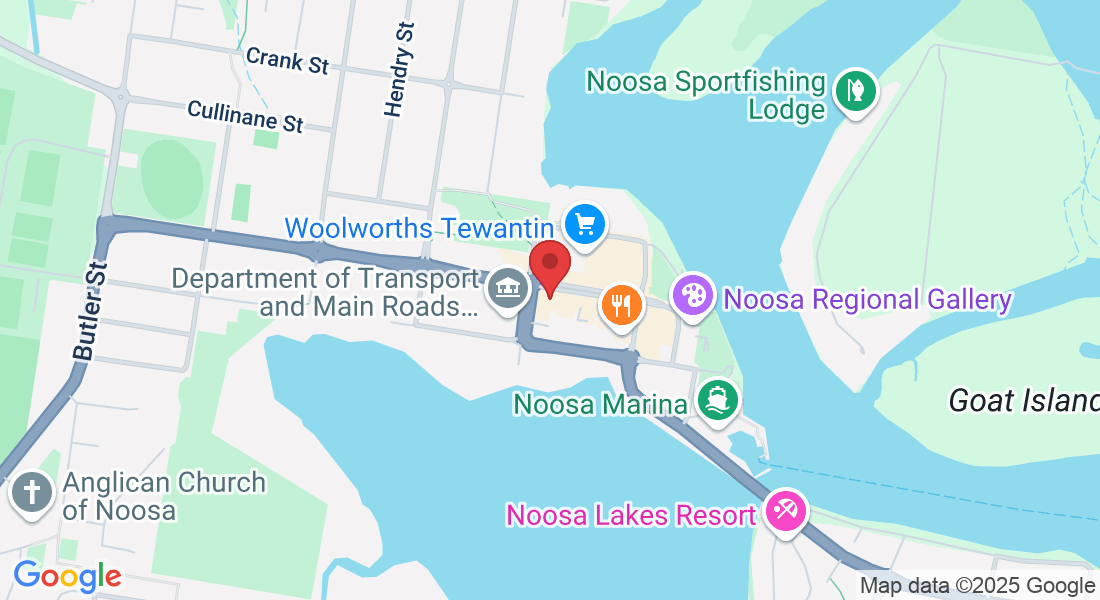Are You Looking For a Physiotherapist In Tewantin or Noosa Area - Queensland?
Personalised, Professional, Physio Care
...because we really care about you!
Tewantin Physiotherapy & Sports Injury Centre is a leading, modern physiotherapy clinic with a dedicated functional exercise and Pilates studio.
Our focus is to enable you to lead a better healthier lifestyle where you can be your best and do the things you want to do and love doing.
Watch our video to see why choosing Tewantin Physiotherapy & Sports Injury Centre is an exciting first step to help you experience the Triple A standard in physiotherapy.

For over 40 years Tewantin Physiotherapy and Sports Injury Centre has consistently provided a high standard of Physiotherapy care to Tewantin residents as well as the broader community.

What Sets Us Apart?
Tewantin Physiotherapy & Sports Injury Centre .... helping you attain your goals and be your best.
Address your pain
Effective physio to get you pain free
Achieve better movement
Restore and correct your movement through
Attain your goals
Reach your health and lifestyle and goals
How Can We Help?
At Tewantin Physiotherapy and Sports Injury Centre we treat a wide range of conditions from everyday aches to complex injuries. Whether you're dealing with a recent injury or something that’s been nagging you for a while, our experienced physiotherapists can help you understand the cause and work towards lasting relief.
We commonly help clients with:
Back pain – from stiffness and postural strain to disc injuries and sciatica
Neck pain & headaches – including tension, whiplash and desk-related strain
Shoulder pain – such as rotator cuff issues, bursitis and frozen shoulder
Knee pain – from ligament injuries and arthritis to patellofemoral pain
Hip & pelvic pain – affecting movement, stability or sleep
Ankle & foot problems – including sprains, Achilles issues and plantar fasciitis
Post-surgical recovery – regain strength and mobility after orthopaedic surgery
Sports injuries – from sprains and strains to overuse injuries
Balance and dizziness issues – including BPPV and vestibular dysfunction

Confused about your pain and not sure what to do?
Get clear, professional advice in our free downloadable information packs
Back Pain
Understand why back pain happens and how to help it
Shoulder Pain
Understand why shoulder pain happens and how to help it
Knee Pain
Understand why knee pain happens and how to help it
Contact us today to speak with our friendly team and find out how we can help you feel your best
Latest Tips and Advice
No blogs found



Tewantin Physiotherapy & Sports Injury Centre is powered by Vitala Health, a group of Allied Health Practices across New Zealand and Australia.
Vitala Health provides clinical solutions that supports clients health and lifestyle needs through best practice treatment, premium facilities, education and ongoing commitment to customer service. Learn more about Vitala Health
If you have any questions before scheduling an appointment or for general enquiries, please contact us. Our team will promptly reach out to assist you.
Opening Hours
Mon: 8:00am - 5:00pm
Tue: 8:00am - 5:00pm
Wed: 8:00am - 5:00pm
Thu: 8:00am - 5:00pm
Fri: 8:00am - 1:00pm
Sat: Closed
Sun: Closed


Follow Us
The Clinic
Common conditions
© Copyright 2025. Vitala Health. All rights reserved.


I had a severe L5/S1 disc/nerve protrusion which ended my interstate driving career. More importantly the injury caused a neurogenic bladder meaning my brain wasn't picking up signals from my bladder when it was full. Adam worked on my back for a solid 12mths and was extremely professional and 10yrs later after following his advice my daily life is far better and I truly believe without the assistance of Adam and his work from home programme after ohysio ended, I would not have recovered to the extent I have. I get to still hold my kids and get through the day but still with pain relief unfortunately. 12/10 and it probably should be 13 Troy Dunne